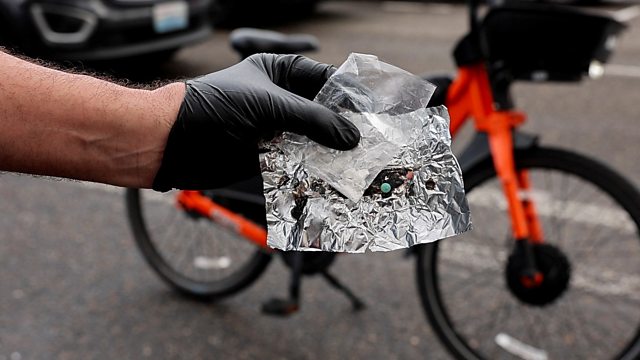A reckoning with drugs in Oregon
In 2020, the people of Oregon voted to decriminalise drug possession. Four years on, Winston Ross explores how the radical policy shift has affected lives across the state.
In 2020, the people of Portland, Oregon - a famed city of progressives and counterculture - voted to pass Measure 110, the USA’s boldest drug policy reform yet. It came after years of campaigning, and was aimed at inverting the thinking of the war on drugs.
Measure 110 decriminalised possession of all illicit substances, including heroin, methamphetamine and oxycodone. The campaigners accurately predicted that the new law would ease tensions around racial disparities within policing, but it also coincided with the spread of the deadly and addictive drug fentanyl, and a tidal wave of homelessness.
Fentanyl is up to 50 times stronger than heroin, and is now the drug of choice for nearly all heroin users. It’s also more deadly - activists and the police now regularly carry the opioid-blocking drug Narcan to treat people overdosing on the streets. Βι¶ΉΤΌΕΔlessness also continues to rise as the cheap and available fentanyl spreads, creating an epidemic on two fronts.
Local journalist Winston Ross explores the complex issues behind Portland’s fentanyl crisis, speaking across the political divide and to many of those in the eye of the storm.
Image: Portland police officer David Baer holds up a blue oxycodone pill and a small bag of fentanyl that he has confiscated on 7 February 2024 (Credit: Deborah Bloom/Reuters)
Last on
More episodes
Previous
Broadcasts
- Tue 26 Mar 2024 02:32GMTΒι¶ΉΤΌΕΔ World Service
- Tue 26 Mar 2024 09:32GMTΒι¶ΉΤΌΕΔ World Service
- Tue 26 Mar 2024 13:32GMTΒι¶ΉΤΌΕΔ World Service South Asia & East Asia only
- Tue 26 Mar 2024 20:06GMTΒι¶ΉΤΌΕΔ World Service Americas and the Caribbean, UK DAB/Freeview, Europe and the Middle East & Online only
- Tue 26 Mar 2024 21:06GMTΒι¶ΉΤΌΕΔ World Service except Online, Americas and the Caribbean, Europe and the Middle East & UK DAB/Freeview
- Sat 30 Mar 2024 17:32GMTΒι¶ΉΤΌΕΔ World Service News Internet
- Sun 31 Mar 2024 04:32GMTΒι¶ΉΤΌΕΔ World Service except East and Southern Africa
- Sun 31 Mar 2024 13:06GMTΒι¶ΉΤΌΕΔ World Service News Internet
- Sun 31 Mar 2024 21:32GMTΒι¶ΉΤΌΕΔ World Service East and Southern Africa

